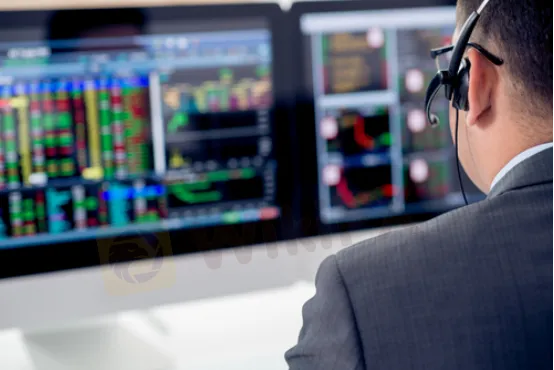简体中文
繁體中文
English
Pусский
日本語
ภาษาไทย
Tiếng Việt
Bahasa Indonesia
Español
हिन्दी
Filippiiniläinen
Français
Deutsch
Português
Türkçe
한국어
العربية
How Frequently Do Professional Forex Traders Trade?
Abstract:To be honest, the answer to the question "how often do expert Forex traders actually trade?" is very dependent on the scenario at hand. Some traders, for example, concentrate on investment while others concentrate on micro-movements. This article cannot provide exact data, but it can offer you an idea of what to expect when you first start trading forex.

To be honest, the answer to the question “how often do expert Forex traders actually trade” is very dependent on the scenario at hand. Some traders, for example, concentrate on investment while others concentrate on micro-movements. This article cannot provide exact data, but it can offer you an idea of what to expect when you first start trading forex.
Trading at a High Frequency
The introduction of high-frequency trading has undoubtedly been one of the most significant shifts in the Forex sector in recent years. Some high-frequency traders can make hundreds, if not thousands, of deals per day when viewed through this lens. Obviously, this isn't done by hand; instead, it's usually done by a computerized system or an algorithm. Beyond that, the “professional advisers” for Metatrader 4 systems that you can find online do not do this. This is highly sophisticated equipment that makes use of computers and connections that are far quicker than those available to a retail trader. Hedge funds, banks, and potentially proprietary trading desks are typically responsible for this.
Trading at a High Frequency
If you're a day trader who works manually, you may be looking at around 20 deals every day. However, not every day is the same, and some days may be devoid of opportunities. As a day trader, you can usually discover three to five transactions quite quickly. Day trading, on the other hand, is perhaps one of the most difficult things to perform, especially on short-term charts, since it introduces a whole new set of psychological concerns. Professionals and people with a great deal of expertise are usually the ones that do this. Nothing beats experience when it comes to preparing for a job. It's a certain way to get a margin call if you go into the five-minute chart right away.
Traders who trade in swings
Swing traders, sometimes known as intermediate traders, are the next type of merchants. These traders only make a few deals per day at most, and they usually hold trades for several hours, if not days. You could see, for example, that the AUD/USD pair has considerable support at a certain level. You're also aware that there's a big amount of resistance 200 pips higher. Someone with intermediate trading experience may enter this trade and hold it until we reach the objective. This might take a few hours or a few weeks. Intermediate and swing traders seek particular goals rather than a defined period. Because of this, determining exactly how much they trade is challenging. It varies on market conditions, but all of these traders will experience this.
Investors, when Should You Trade?
Another type of trader will be more in line with investors. These are traders that spot an uptrend in the currency they are trading and purchase and hold. Traders like this will frequently hold onto a deal for weeks, if not months. Some of these traders will even hold a currency for a period of time. Currency pairings, on average, enter cycles of two to three years on each trend, thus they are the traders that are trying to catch such moves. Obviously, their profit and loss position alters dramatically, as they may have 300-pip pullbacks, for example.However, while a 300-pip pullback may seem insignificant in the grand scheme of things, it takes confidence and mental fortitude to hold on to a trade and let it work. These are often traders that will start with tiny bets and gradually increase their stake as the transaction progresses in their favor. So, they may have one transaction running for two or three years, but in actuality, they may add to it 30 or 40 times, for example.
Overtrading should be avoided.
Overtrading is something that traders should avoid at all costs. While most currency pairings have a small spread, it is a cost of doing business. The spreads on the altar short-term traders that use a computer to place their trades are as near to zero as feasible. They trade on platforms and dark pools that aren't available to most regular traders, thus overtrading isn't a concern for them. In reality, that is precisely how they generate money.For the rest of us, it makes sense to optimize each transaction's efficiency, which means not hopping into and out of the same trade many times.
Consider buying the Australian dollar around 0.70 against the US dollar. If you continue trading at this level and take your profit at 0.71, you will have made a profit of 100 pips, which is a nice trade. However, if the trend continues to rise and you resume the trade, you may be forced to cope with a needless pullback. At the very least, you're paying the spread twice, which doesn't make sense. In other words, you should stay in the transaction until you either reach your aim or the market's attitude has clearly shifted.
In some ways, asking the question “has anything changed in the general attitude of the trade that I am in?” is the simplest method to determine how much you should be trading.
Unfortunately, far too many Forex traders (including myself) become bored from time to time and begin placing trades simply because they feel compelled to remain in the market. If you're looking to lose money, that's a terrific way to do it. When it comes to trading, though, little is more. The higher the quality of the arrangement, the more you should trade it. The others that are “so-so” should be left alone. In short, the less trades you do, the better off you are, which is counterintuitive but something I've learnt over the previous 12 years.

Disclaimer:
The views in this article only represent the author's personal views, and do not constitute investment advice on this platform. This platform does not guarantee the accuracy, completeness and timeliness of the information in the article, and will not be liable for any loss caused by the use of or reliance on the information in the article.
Read more

Indonesia officially joins the BRICS countries
Indonesia's decision to join the BRICS group will not only enhance economic cooperation within BRICS countries but is also expected to have a profound impact on global trade, investment, and the currency system.

Malaysian Pilot Loses RM1.36 Million in UVKXE Investment App Scam
A Malaysian pilot, aged 50, has suffered a staggering financial loss of RM1,366,885 to a fraudulent investment scheme promoted via Instagram. The scheme involved an app called UVKXE, which claimed to offer attractive investment opportunities.

What Your Zodiac Sign Says About Your Financial Luck in 2025
The Year of the Snake, also known as the "Little Dragon Year," is deeply connected to wealth and prosperity in traditional culture. Ancient beliefs hold that snakes bring good fortune and riches, which is why phrases like "wealth snake" are common. Dreams about snakes are often interpreted as a sign of impending financial luck. The Year of the Snake not only symbolises wisdom and affluence but also serves as a reminder to approach challenges with caution and self-reflection.

Trump's new tariffs, the dollar may fall
As Trump nears taking office, the key question is whether these new tariffs will be implemented, and whether the dollar can continue to rise.
WikiFX Broker
Latest News
Ghana Trader Jailed for $300K Forex and Crypto Scam
US Dollar Surge Dominates Forex Market
Hong Kong Police Bust Deepfake Crypto Scam Syndicate Involving $34 Million
Is it a good time to buy Korean Won with the current depreciation?
Pepperstone Sponsored the "Aston Martin Aramco Formula One Team"
ACY Securities Integrates MetaTrader 5 to Enhnace Copy Trading Service
Soegee Futures Review: Should You Trust This Broker?
Malaysian Pilot Loses RM1.36 Million in UVKXE Investment App Scam
Indonesia officially joins the BRICS countries
Attention! Goldman Sachs Cuts Gold Target to $2910
Currency Calculator






